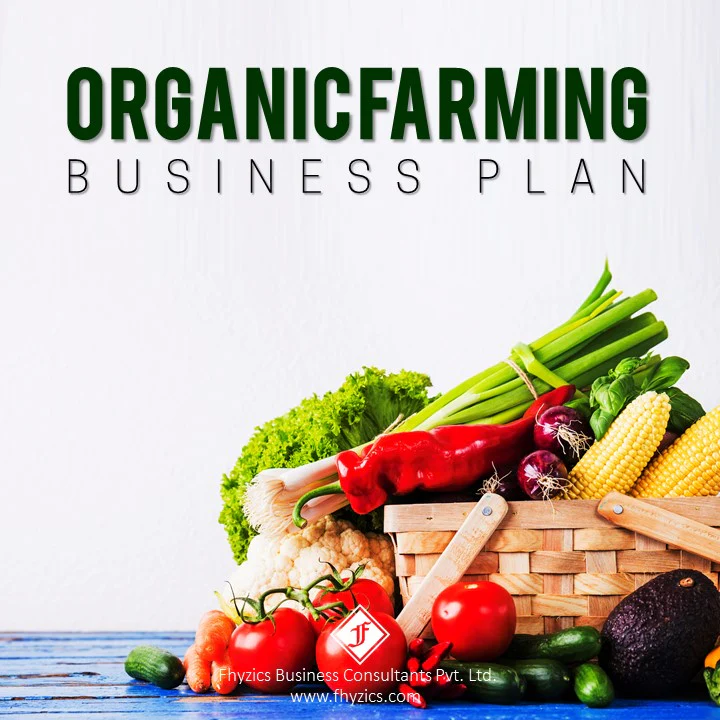
Creating a robust Organic Farm Business Plan is crucial for anyone looking to establish or expand an organic farming venture. An effective Organic Farm Business Plan serves as a roadmap for your business, guiding you through the various stages of planning, execution, and growth. This plan is not only essential for securing financing and managing resources but also for ensuring the long-term success and sustainability of your organic farm. By addressing key elements such as market analysis, financial projections, and operational strategies, your Organic Farm Business Plan can help you navigate the complexities of the agricultural industry and achieve your farming goals.

The first step in developing an Organic Farm Business Plan is conducting thorough market research. Understanding the demand for organic products in your target market is essential for making informed decisions about what to grow and how to position your farm. This involves analyzing current market trends, identifying potential customer segments, and evaluating the competition. By gaining insights into consumer preferences and market conditions, you can tailor your product offerings to meet demand and differentiate your organic farm from others in the area. Market research also helps in setting realistic pricing strategies and identifying potential sales channels, such as farmers’ markets, grocery stores, or direct-to-consumer sales.
Next, your Organic Farm Business Plan should include a detailed description of your farm’s operations. This section outlines the types of crops or livestock you plan to raise, the farming methods you will use, and the layout of your farm. It’s important to detail how you will manage soil health, pest control, and crop rotation to ensure that your practices align with organic standards. Additionally, you should include information about your equipment needs, labor requirements, and any infrastructure improvements that may be necessary. A well-defined operational plan helps ensure that your farm runs smoothly and efficiently, reducing the risk of unforeseen challenges and maximizing productivity.
Financial planning is a critical component of any Organic Farm Business Plan. This includes developing detailed financial projections that cover startup costs, operating expenses, and revenue forecasts. Start by estimating the costs associated with purchasing land, equipment, seeds, and other inputs. Include ongoing expenses such as labor, utilities, and maintenance. Your financial projections should also account for potential income from sales and any funding or loans you may need to secure. By creating a comprehensive budget and financial plan, you can better manage your resources, track your financial performance, and make informed decisions about investments and growth.
Marketing and sales strategies are another key element of your Organic Farm Business Plan. Effective marketing helps you build a brand, attract customers, and drive sales. Consider how you will promote your farm and its products, whether through local advertising, social media, or partnerships with local businesses. Developing a unique selling proposition (USP) that highlights the benefits of your organic products can also help you stand out in a competitive market. Additionally, outline your sales strategies, including pricing, distribution channels, and customer engagement approaches. A well-crafted marketing plan is essential for building a customer base and achieving long-term success in the organic farming industry.
Another important aspect of your Organic Farm Business Plan is risk management. Organic farming presents unique challenges, such as dealing with pests and diseases without synthetic chemicals. Identifying potential risks and developing strategies to mitigate them is crucial for maintaining farm productivity and profitability. This includes having contingency plans for adverse weather conditions, market fluctuations, and supply chain disruptions. Risk management strategies help ensure that your farm can adapt to changes and overcome obstacles, supporting the long-term stability of your business.
In addition to these elements, your Organic Farm Business Plan should outline your goals and milestones. Setting clear, achievable objectives helps you measure progress and stay focused on your long-term vision. Whether you aim to expand your farm, increase production, or enter new markets, defining your goals provides direction and motivation. Regularly reviewing and updating your business plan ensures that it remains relevant and aligned with your evolving business needs and market conditions.
In conclusion, an Organic Farm Business Plan is a vital tool for anyone entering or expanding within the organic farming sector. By addressing market research, operational strategies, financial planning, marketing, risk management, and goal setting, you can create a comprehensive roadmap that guides your business to success. A well-prepared Organic Farm Business Plan not only helps you navigate the complexities of organic farming but also enhances your ability to secure financing, attract customers, and achieve long-term growth. Investing time and effort into developing a robust business plan is essential for building a thriving organic farm and making a positive impact in the agricultural industry.









